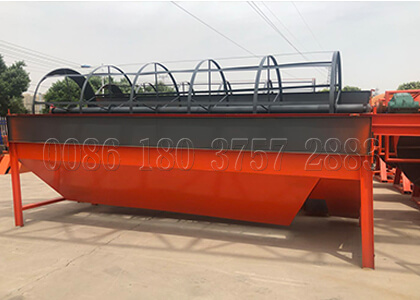How to select unqualified materials out when composting
Have you figured out what should and ought to get into your compost? By screening materials that you simply do not qualify, you will possess the best ingredients for the compost pile.
Compost Materials
The type of material that define compost are raw and they also typically originate from waste. These organic disposable materials can come from many different places in and around your house. They are able to are available through your garden or even your home. The greater number of organic waste that is used for composting, the a smaller amount of it that winds up in landfills.
Recent studies performed by the EPA have revealed that more than twenty percent of the country's solid waste system contains food scraps and yard trimmings. This results in a lot of waste that ultimately ends up in landfills if the more eco-friendly alternative would be to compost it instead.
Some Great Benefits Of Composting
Among the finest top reasons to compost is basically that you will be aware of what exactly is entering your composting material, and you will keep things that you do not want out. You have the ability to balance the compost in your specifications, and there is no need to rely on just one single component.
Instead, you are able to choose an array of ingredients for the pile. These ingredients are generally separated into green and brown materials. The better variety you use in choosing the materials, the better nutrient rich the compost will be. It will likely be filled up with diverse microbial life and micro nutrients which can be necessary from the composting process.
Ingredients To Incorporate
The following is a small list of things that you should use for composting material. They include:
Grass clippings
Leaves
Coffee grounds
Dry pet food
Lint from dryer
Organic manure
Wine
Dust
There are many items that you could include in your compost, but you should know that these materials may require additional prep time before they can be ready. You may mix them in with your composting materials, or you can put them inside a pile within your backyard.
However, remember that it may take several seasons before they are compatible with composting. These products include:
Newspaper
Paper bags
Toothpicks
Egg cartons
Saw dust
Pine cones
Corn cobs
Items To Screen
There are many materials that ought to be avoided when composting, and there are many materials that happen to be definite no's within the composting process.
Those items that needs to be avoided include materials such as twigs and enormous branches.
Animal products and excrement should never be included in compost. Materials like:
Animal droppings
Fish skin
Fish bones
Animal bones
Milk
Cheese
The Best Way To Increase Composting Time
Compost will quickly 'cook' once temperatures reach 120 degrees F, and there are many tips that you can follow to increase this technique.
After screening the unwanted materials, shred the bigger materials to your compost. This allows bacteria to break it down faster.
It is best to include large piles of materials to your compost at one time.
Finally, always be certain your compost is with the sunlight.
Composting is a wonderful way to increase the healthiness of the garden, while also saving the environment. To help keep your compost pile organic, screen for unqualified materials for example animal waste, animal products and synthetic chemicals.

No comments:
Post a Comment